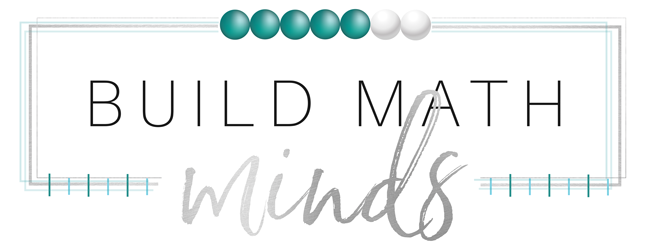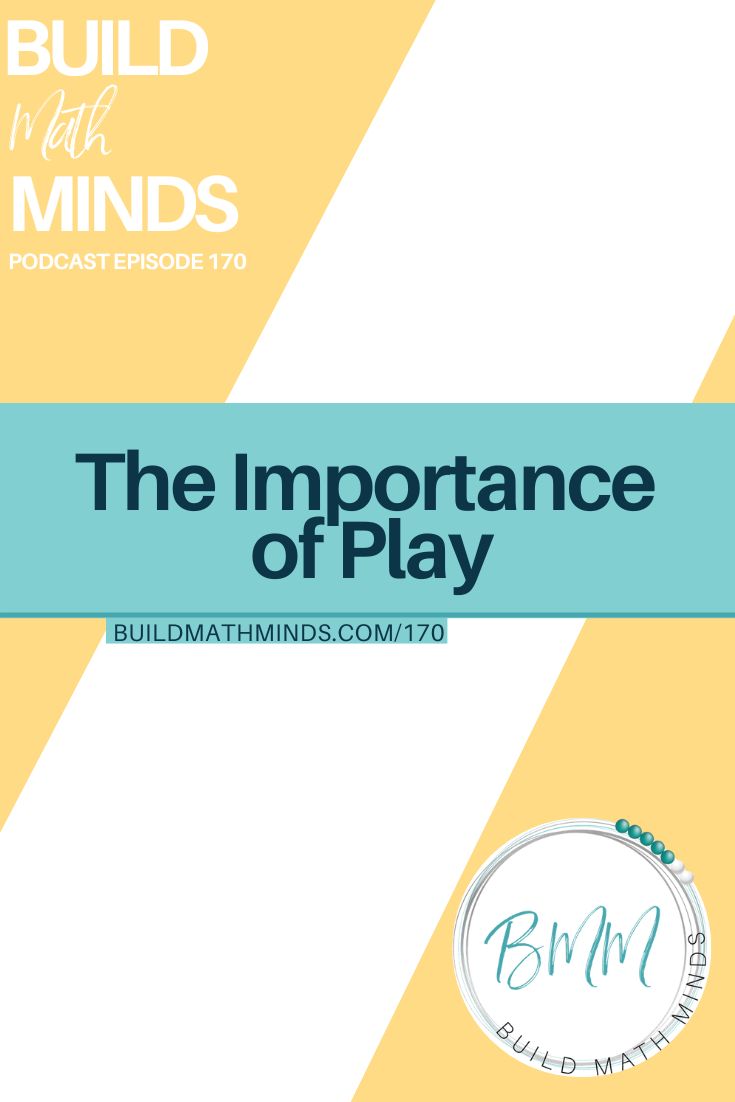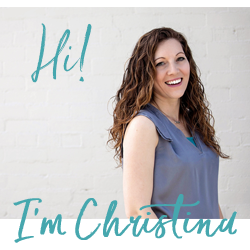Become a member of the Build Math Minds PD site
From Play to Practice: Connecting Teachers’ Play to Children’s Learning by Marcia Nell and Walter Drew with Deborah Bush
Doodle Bliss: Book 1. Doodle Book for Adults
Beautiful Building Blocks from ModernRascals.ca
The youtube video for this episode
Welcome fellow Recovering Traditionalists to Episode 170: The Importance of Play
Before we get into the episode, this week’s positivity comes from the chat during our last Math Strategy Session. Rosalba Serrano has been doing these live sessions since December to help us all better understand the strategies kids use in math and how to help all kids develop them. I’m going to share two chats that popped up:
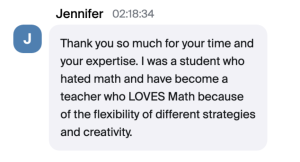
Jennifer made a great point here in that helping students develop these different strategies really does build that creativity and helps kids see that they can approach math in a way that makes sense to them.
And I loved this one from Sue because she reminded us all that no matter how long we’ve been teaching, whether it be 1 year or 20+ years, we are always learning ways to help our students.
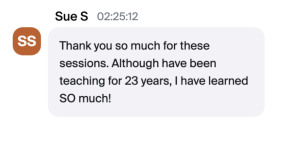
Now that all the sessions are complete I wanted to remind you that you can access the recordings and resources inside the Build Math Minds PD site. Membership is just $39 a month and you can cancel at any time. Go to BuildMathMinds.com/bmm to become a member and access the recordings along with hundreds of other PD videos and resources designed to help you build the math minds of your elementary students.
On to our episode…As we near the end of the school year here in the United States I want to take this episode to remind you about the importance of play. This might be to remind you that it’s okay to let the kids play these last few days of school. It might be that you need a reminder that over the summer it’s okay to encourage kids to play with math instead of doing a packet of worksheets. Or maybe you need the reminder that YOU, yes YOU, need to play this summer as well.
In the book From Play to Practice: Connecting Teachers’ Play to Children’s Learning by Marcia Nell and Walter Drew with Deborah Bush, they describe true play as having no preset goal. Often the things we “play” have a preset goal: to win.
As a person who grew up playing sports, card games, and board games and have passed that along to my children, it made me pause and think about how often my kids and I actually play with no preset goal in mind. Throughout this book they encourage open-ended play along with reflection to think about what is learned and the new understandings you are developing. Now I’ll be honest and say I’m probably not going to make my kids and myself stop and reflect about what we learn, but I am going to encourage more open ended play for us all.
Here’s some ideas of things I wrote down that I could do this summer:
-Creating designs with pattern blocks
-Doodling
-Painting without a predetermined picture in mind
-Create a mandala using spare parts or even rocks
-Building with blocks (I found some beautiful, but expensive, blocks at the website ModernRascals.ca that I’ll link up if anyone is interested)
-Creating pottery pieces
My final thoughts on the importance of play are going to come directly from the book. Let’s take a look at the Seven Principles of Self-Active Play they lay out on pages 7-11. As you listen to these, are there a few ideas here that you’ve been missing in your life? If you are like me, you probably spend too much time doing structured activities or just scrolling on your phone or binging NetFlix. Even reading, which I enjoy, is still very structured and does not bring out these principles of play.
Principle 1 – Play is a source of creative energy, a positive force, and a safe context for constructing meaningful self-knowledge and revitalizing the human spirit.
Principle 2 – Hands-on play and art making with open-ended materials reconnect individuals with earlier times of their lives, spontaneously evoking deep inner feelings such as hope, will, purpose, competence, fidelity, love, care, and wisdom.
Principle 3 – The play space is a state of being that is self-constructed or co-constructed and is based on the players’ previous experiences and their perceptions of the levels of safety and trust leading into the play space.
Principle 4 – Experiences within the play space elicit strong affect toward the play space, such as feelings of protectiveness, a yearning to return, and a desire for further exploration of higher levels of understanding and self-awareness.
Principle 5 – The creative energy released within the play space is accelerated as players assume new pretend roles and thrill in discovering “Who will I be next?” and “What will I do next?”
Principle 6 – Play is a source of energy for kindling strong positive feelings and connections with other people and between players. These feelings are pervasive, not just isolated to the play space; the players continue to have these feelings after they finish playing and move into the daily activities of their lives.
Principle 7 – Play’s intrinsic qualities allow players to experience spontaneity of the spirit, think deeply, feel intensely, and build a trust in an intuitive self.
Do you feel like you are missing some of those things? If so, it’s time to play more.
So as you think about your plans this summer, does it involve some play? The key to Self-Active Play is that it should be hands-on & open ended so that your body and mind can be engaged. As you make plans for yourself, see if there are opportunities for your students to get involved in Self-Active Play this summer and send home a list of those opportunities.
Until next week my Fellow Recovering Traditionalists, keep Building Math Minds.
